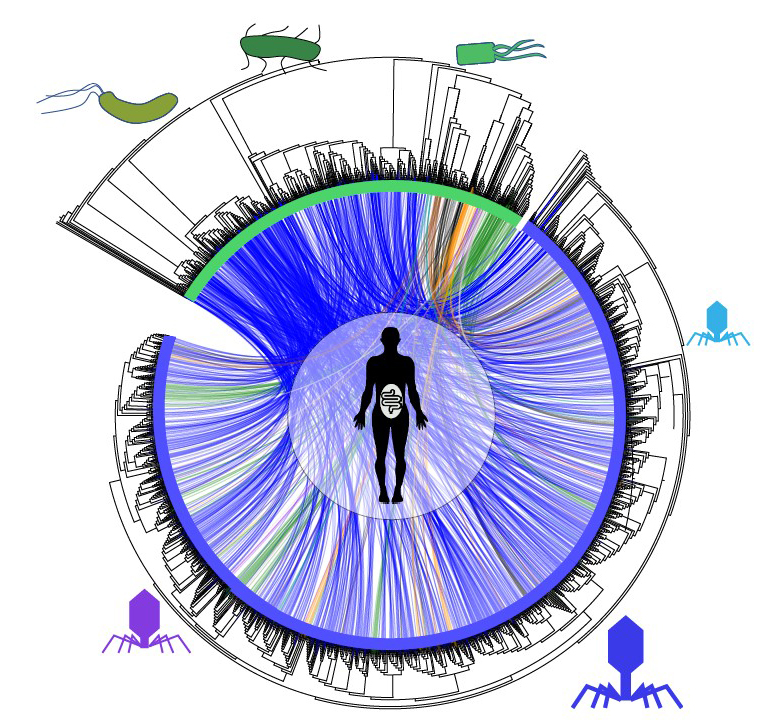 Phages play an essential role in the equilibrium of our microbiota. Better understanding their mode of action raises the possibility of using them as therapeutic tools to fight against some gut infections and diseases. In this interview, Romain Koszul and Martial Marbouty from the Spatial Regulation of Genomes group discuss how the 3C method commonly used to obtain 3D maps of genomes can also be employed to assess the physical proximity between the various DNA (from a complex population of organisms for example) in a sample. This method can help better understand the composition of the gut microbiome in humans and, notably, which bacteria is targeted by which phage.
Phages play an essential role in the equilibrium of our microbiota. Better understanding their mode of action raises the possibility of using them as therapeutic tools to fight against some gut infections and diseases. In this interview, Romain Koszul and Martial Marbouty from the Spatial Regulation of Genomes group discuss how the 3C method commonly used to obtain 3D maps of genomes can also be employed to assess the physical proximity between the various DNA (from a complex population of organisms for example) in a sample. This method can help better understand the composition of the gut microbiome in humans and, notably, which bacteria is targeted by which phage.
The 3C method could be employed to ensure that bacteriophages used in therapeutic protocols with antibiotics only target the desired pathogenic bacteria species thereby limiting deleterious side effects for the patient. Additionally, this technic could be used to test the compatibility between the donor and the recipient of a fecal transplantation.
Listen to the interview here




